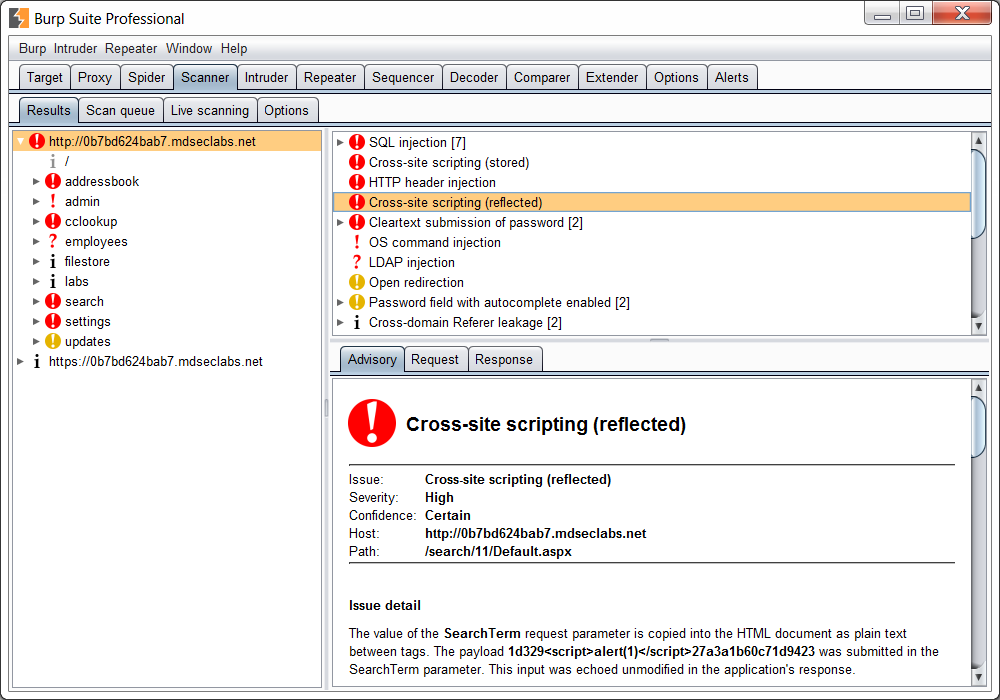Burp Suite is an integrated platform for performing security testing of web applications. Its various tools work seamlessly together to support the entire testing process, from initial mapping and analysis of an application's attack surface, through to finding and exploiting security vulnerabilities.
Burp gives you full control, letting you combine advanced manual techniques with state-of-the-art automation, to make your work faster, more effective, and more fun.
Burp Suite contains the following key components:
- An intercepting Proxy, which lets you inspect and modify traffic between your browser and the target application.
- An application-aware Spider, for crawling content and functionality.
- An advanced web application Scanner, for automating the detection of numerous types of vulnerability.
- An Intruder tool, for performing powerful customized attacks to find and exploit unusual vulnerabilities.
- A Repeater tool, for manipulating and resending individual requests.
- A Sequencer tool, for testing the randomness of session tokens.
- The ability to save your work and resume working later.
- Extensibility, allowing you to easily write your own plugins, to perform complex and highly customized tasks within Burp.
Burp is easy to use and intuitive, allowing new users to begin working right away. Burp is also highly configurable, and contains numerous powerful features to assist the most experienced testers with their work.
Release Notes
v1.6.23
This release adds a new scan check for external service interaction and out-of-band resource load via injected XML doctype tags containing entity parameters. Burp now sends payloads like:
<?xml version='1.0' standalone='no'?><!DOCTYPE foo [<!ENTITY % f5a30 SYSTEM "http://u1w9aaozql7z31394loost.burpcollaborator.net">%f5a30; ]>
and reports an appropriate issue based on any observed interactions (DNS or HTTP) that reach the Burp Collaborator server.
The release also fixes some issues:
- Some bugs affecting the saving and restoring of Burp state files.
- A bug in the Collaborator server where the auto-generated self-signed certificate does not use a wildcard prefix in the CN. This issue only affects private Collaborator server deployments where a custom SSL certificate has not been configured.
